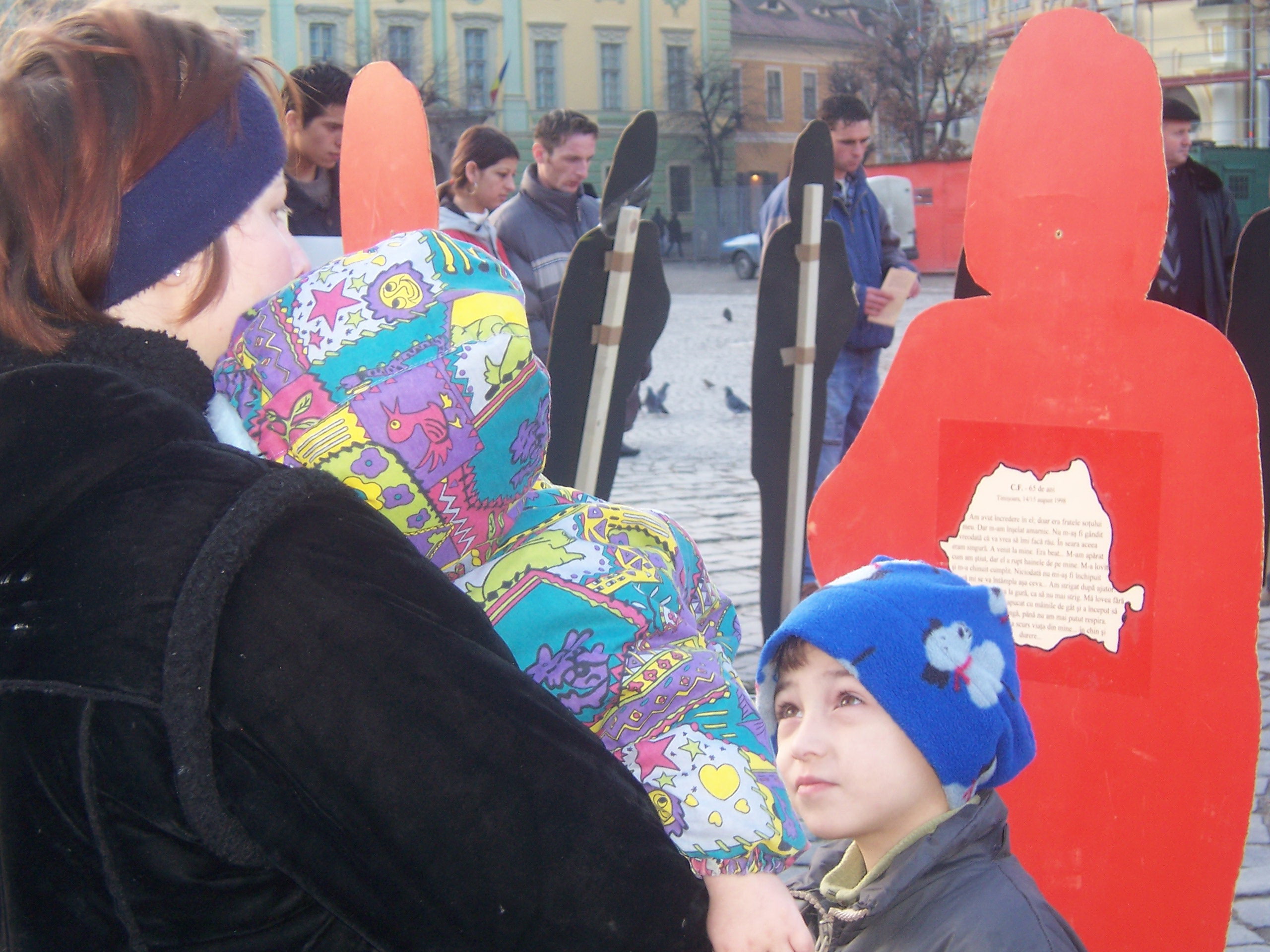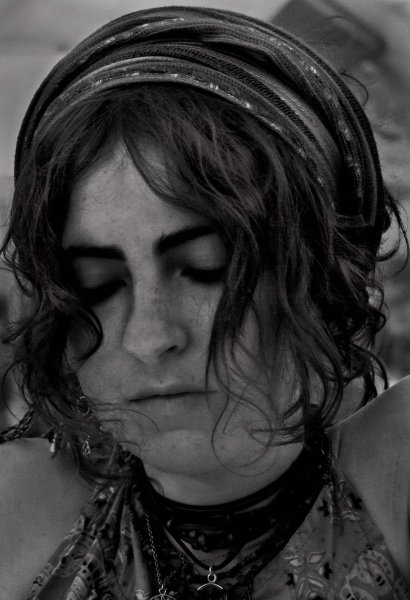This was a big year for women: The first serious female presidential candidate, the first predominately female state senate, the first female Top Chef. Yet the advertising world has not caught up to the advances of half our population and continues to use stereotypes and violence to prey on our most vile desires. Here are the worst of them–the trends that won’t die despite our cultural outrage, and personal boredom.
Category Archives: links
cele 16 zile contra violentei in maramures
Baia Mare: campanie si articole
23.11 – Drepturile femeii – drepturile tuturor?
4.12 – 97 de femei abuzate în Maramureş
7.12 – Violenţa în familie – consecinţă şi a violenţei culturale?
link-uri de la doina
16 days: nov. 25 in mexico
Pain and Protest on the Day of the Butterflies: Violence Persists Against Women in Mexico
A 1995 novel by writer Julia Alvarez retold the story of the three Mirabal sisters brutally assassinated by the Trujillo dictatorship in the Dominican Republic in 1960. Decades later, the date of the murders, Nov. 25, was declared the International Day for the Elimination of Violence against Women by the United Nations.
In Mexico, more than 200 women’s and human rights activists kicked off a cross-country caravan in Ciudad Juarez to protest femicide and ongoing violence in all its forms against women.
via lfn
WILPF Statement for International Human Rights Day, 10 December 2008
Today, 10 December 2008, marks the 60th anniversary of the adoption of the Universal Declaration of Human Rights (UDHR) by the United Nations General Assembly. The UDHR is a major achievement of the United Nations, setting a common human rights standard for all nations and peoples. Its legally binding International Covenant on Civil and Political Rights and on Economic, Social and Cultural Rights and their Optional Protocols, as well as the many conventions and treaties to promote and protect human rights for all, form a remarkable body of international human rights law.
In this 60th anniversary year, the United Nations has undertaken an intensive programme of activities leading up to today’s commemoration, under the slogan “dignity and justice for all of us”. It culminates in sixteen days of action against gender based violence.
The implementation of accepted human rights norms remains a significant challenge. Although the international human rights standards and their oversight have been strengthened over the years, forces and trends (by States and private companies) continue to threaten and undermine their application. Too often under the false pretext of protecting women, women are denied the right to education, mobility, the right to their own body and the free choice to plan their own future. All over the world, women have to struggle for basic human rights in many aspects of their lives.
Since its inception in 1915, the Women’s International League for Peace and Freedom (WILPF) has worked for all human rights to be respected. We have equally worked for the prevention of war and the eradication of militarism, believing that these conditions negate human rights. We are convinced that human rights cannot exist without peace and freedom.
Exercising the right to have an equal voice in international policy-making and the questions of war and peace, The Women’s International League for Peace and Freedom calls for: Continue reading
FW: Press release: Gender justice is climate justice
Poznan, Poland, December 8^th 2008
Women from around the world working together in the GenderCC network reassert that real solutions to the climate crisis can only be achieved when there is gender justice. We demand that the UNFCCC process must commit to the integration of the gender dimension into all policies, mechanisms, programmes and institutional frameworks. As a first step, UNFCCC Parties must therefore adopt a resolution on gender justice which fulfills the binding obligations on gender and human rights that the UN have already endorsed. GenderCC calls for a one-day plenary session specifically dedicated to gender in order to discuss the gender dimension in the ongoing negotiations. Moreover, we call upon the UNFCCC to acknowledge the many solutions women already have and the actions they take on the ground to mitigate and adapt to climate change.
Continue reading
Nicaragua: Feminists under attack by fundamentalist forces
More information on the crisis: “Nicaragua: Feminists under threat and attack” Continue reading
Fwd: A fost lansata Campania Respectului pentru Femei
In Romania, in fiecare minut doua femei sunt victime ale violentei domestice[1]
Bucuresti, 4 decembrie 2008. Pentru a aduce acesta realitate dura in atentia opiniei publice, AVON Romania, cu sprijinul Centrului pentru Jurnalism Independent, a lansat astazi Campania Respectului pentru Femei. Campania are drept scop prevenirea violentei impotriva femeilor prin educarea publicului si prin sustinerea proiectelor sociale care combat acest fenomen. Continue reading
[Sibiu] Comunicat de presa: actiuni de combatere a violentei domestice
via c.
Evenimente publice cu rol de constientizare
„Prin indiferentã permiti violenta. Aratã cã îti pasã!”



Pe plan mondial, Organizatia Natiunilor Unite a stabilit ca în fiecare an între 25 noiembrie si 10 decembrie sã aibã loc 16 zile internationale de combatere a violentei împotriva femeii. La Sibiu Asociatia pentru Libertate si Egalitate de Gen – A.L.E.G. organizeazã în 8-9 decembrie actiuni publice care au rol de constientizare si informare. Mesajul nostru este „Prin indiferentã permiti violenta. Aratã cã îti pasã! Continue reading
“Seriously funny”
Fw: call for papers European Roma Women’s Magazine
via crina
Timisoara, 03.11.2008.
Dear colleague and friend,
The Association of Gypsy Women ‘For Our Children’ from Timisoara and of Foundation Desire from Cluj, Romania, launches a new journal, entitled European Roma Women’s Magazine. This became possible due to the financial support of the Open Society Foundation’s Roma Participation Program.
The magazine will be published once in a year in English with Romani abstracts. We prepare and print out its first issue by the end of March 2009 (collecting its articles by the end of January 2009).
Our Magazine addresses the complex and complicated issue of “Roma women” at the intersection of their geopolitical position, ethnicity, social and economic status and age with the aim to represent the socio-cultural diversity of the European Roma women, seen in their immediate communities, and in the context of their relationship with both Roma men and non-Roma women. Crucial for us is the understanding of how they are subjected to multiple and intersectional discrimination, but also how they are acting as powerful agencies by fighting for the enhancement of the society within which they live, and for the changing into better the condition of their own, but as well as of other subordinated and disadvantaged social categories.
Continue reading
